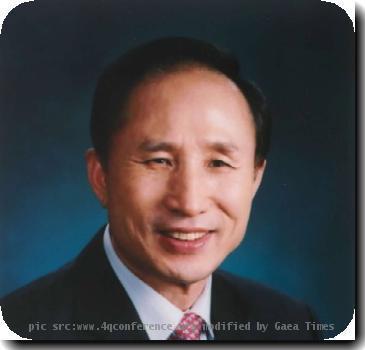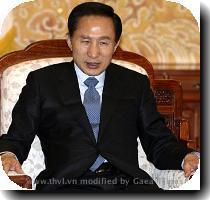AP sources: US expects China to join world criticism of North Korea for sinking South’s ship
By Matthew Lee, APThursday, May 27, 2010
AP sources: China to join criticism of N. Korea
ELMENDORF AIR FORCE BASE, Alaska — The Obama administration expects China to join in the international criticism of North Korea for the sinking of a South Korean warship.
After U.S.-China discussions this week in Beijing, senior American officials say China will carefully move closer to South Korea’s position that the North must be held accountable for the torpedo attack in March.
The officials spoke on condition of anonymity due to the sensitivity of the diplomacy. China is North Korea’s closest ally.
The administration expects Beijing to begin its shift away from its current neutral position during a visit to Seoul this weekend by Chinese Premier Wen Jiabao (win jah-bow). The officials say Wen is likely to signal that China will accept the results of an international investigation blaming North Korea.
THIS IS A BREAKING NEWS UPDATE. Check back soon for further information. AP’s earlier story is below.
SEOUL, South Korea (AP) — U.S. Secretary of State Hillary Rodham Clinton said Wednesday the world must respond to the sinking of a South Korean warship that has been blamed on North Korea.
“This was an unacceptable provocation by North Korea, and the international community has a responsibility and a duty to respond,” Clinton told reporters after talks with South Korean leaders.
The ship sinking “requires a strong but measured response,” she said at a joint news conference with South Korean Foreign Minister Yu Myung-hwan, though she did not elaborate.
Clinton said the United States would be consulting with South Korea and members of the U.N. Security Council on what the appropriate action would be, but she declined to offer a timeline.
“We’re very confident in the South Korean leadership, and their decision about how and when to move forward is one that we respect and will support,” she said.
Tensions on the Korean peninsula have risen sharply since a team of international investigators last week concluded that a torpedo from a North Korean submarine tore apart the corvette Cheonan on March 26. It killed 46 South Korean sailors and was one of the South’s worst military disasters since the 1950-53 Korean War.
Clinton spent just a few hours in Seoul discussing possible international responses with South Korean leaders. North Korea denies it was to blame and has threatened any attempt to punish it could lead to war.
Clinton arrived in the South Korean capital Wednesday after intense discussions on the deteriorating Korean situation with Chinese officials in Beijing.
“I believe that the Chinese understand the seriousness of this issue and are willing to listen to the concerns expressed by both South Korea and the United States,” she said. “We expect to be working with China as we move forward in fashioning a response.”
China, the North’s biggest ally, says it is still weighing the evidence over the sinking.
Beijing regards the sinking as “extremely complicated” and has no firsthand information about the cause, Vice Foreign Minister Zhang Zhijun told reporters in the Chinese capital.
“China is carefully and prudently studying and examining the information from all sides,” he said.
South Korea’s Yu, asked about the possibility of China or Russia blocking action by the U.N. Security Council, said they “will take time, I’m sure, but they will not be able to deny the facts.”
Clinton called the investigation into the sinking “very thorough, highly professional” and “very convincing.” She said both the United States and South Korea had offered China “additional information and briefings about the underlying facts of that event.”
“We hope that China will take us up on our offer to really understand the details of what happened and the objectivity of the investigation that led to the conclusions,” she said.
Earlier Wednesday, Clinton met South Korean President Lee Myung-bak and discussed cooperation on the response to the ship sinking.
Lee thanked Clinton for Washington’s backing, while the top U.S. diplomat replied that she came to South Korea to show her “clear and unmistakable” support for Lee and his government, according to Lee’s office.
As Clinton visited Seoul, the two Koreas traded new threats amid rapidly deteriorating relations.
The North’s military said it would block cross-border traffic heading to a joint industrial zone in North Korea if the South does not stop psychological warfare operations. It also vowed to blow up any loudspeakers South Korea sets up to broadcast propaganda northward.
South Korea, meanwhile, accused Pyongyang of taking “menacing” measures and vowed to “deal with these North Korean threats unwaveringly and sternly,” Unification Ministry spokesman Chun Hae-sung said.
Associated Press reporters Sangwon Yoon and Hyung-jin Kim in Seoul and Christopher Bodeen in Beijing contributed to this report.
Tags: Alaska, Asia, Beijing, China, East Asia, Elmendorf Air Force Base, Greater China, High School Basketball, High School Sports, Lee Myung-bak, Military Facilities, North America, North Korea, Seoul, South Korea, Sports, United States

